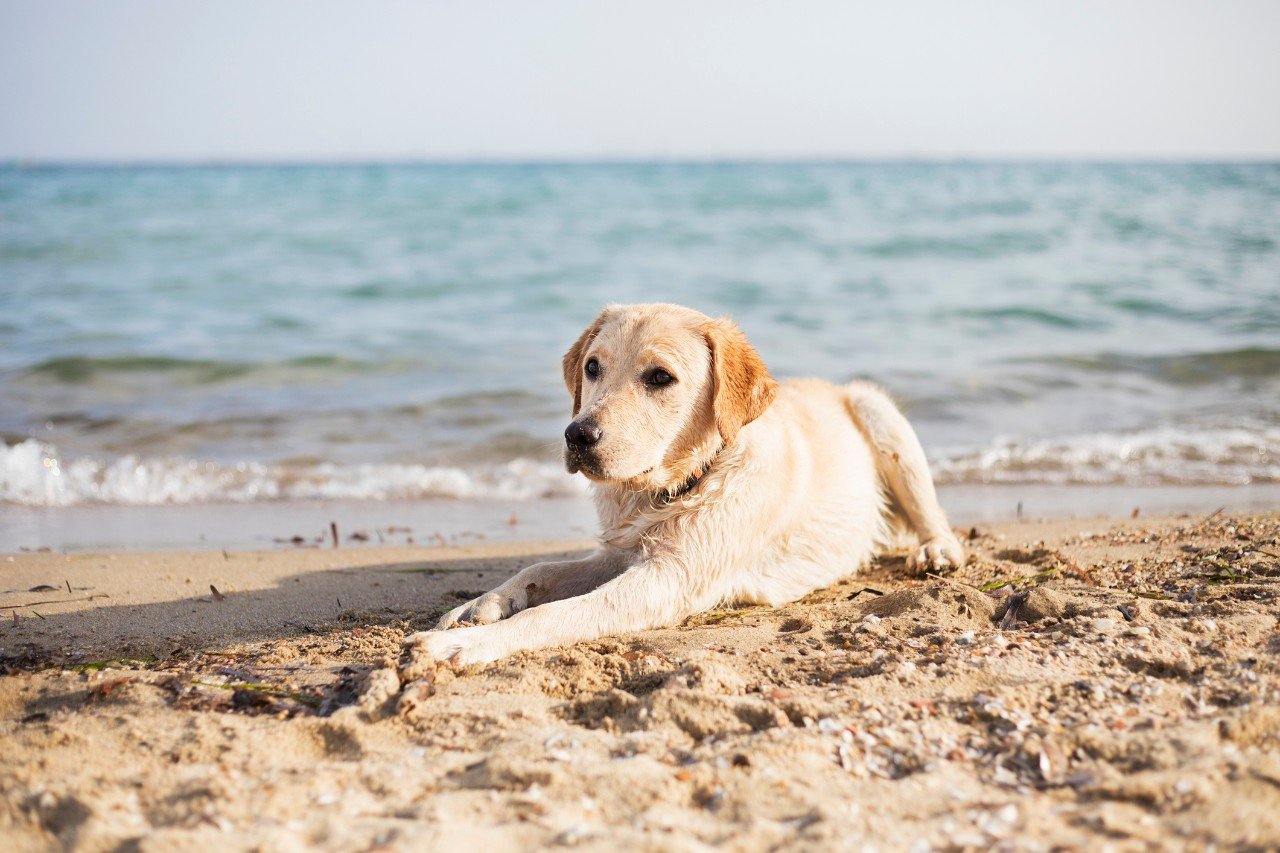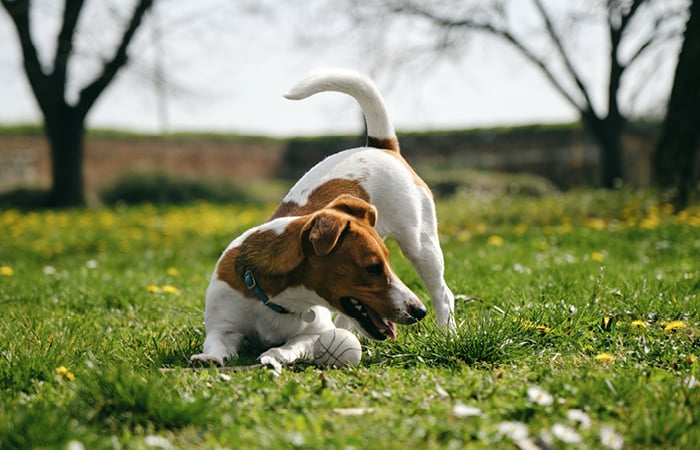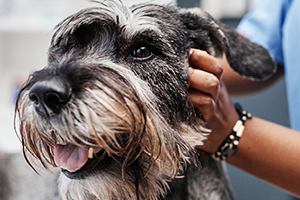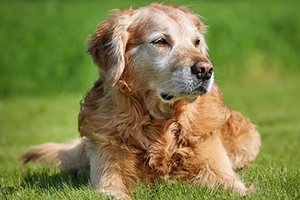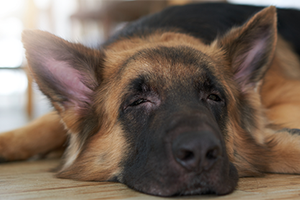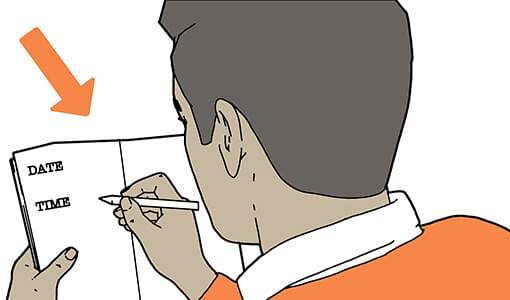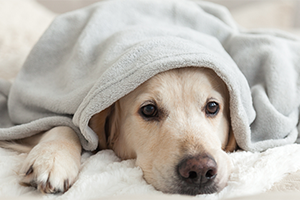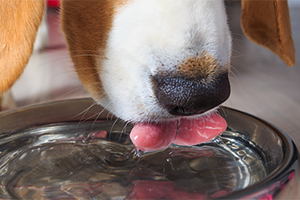How much sleep do dogs need?

Quick Links
Dogs sure can snooze. Unlike humans, who generally stay up all day and then sleep for one long stretch at night, dogs spread out their sleep time. In fact, they might only spend five hours a day being active, with half the day devoted to sleeping, and the remaining time resting.
As with humans, factors such as activity levels, age and health can all affect a dog’s need to sleep, as well as the quality of that sleep. Breed, size, weight and environment will also have a bearing on how much shut-eye they’ll take.
How many hours' sleep does a dog need?
Adult dogs should roughly get between 12 and 14 hours sleep a day. This may sound like a lot, but their ancestral genetic coding tells them to expend energy only when needed, whether for hunting, or play and socialising. Larger breeds can sleep for even longer; up to 18 hours a day.
Meanwhile puppies are likely to sleep even more than adult dogs during the daytime. Despite being little balls of energy one minute, keen to play and explore the world, young pups find all that stimulation an exhausting business. You might see them suddenly keel over and take a nap mid-way through an activity to recharge – try to leave them to it, if you can. Sleeping is important to puppies’ development, and they can easily notch up 18 hours a day.
Puppy sleeping habits
Is all dog sleep the same?
Within those many hours of doggy downtime, experts have pinpointed different types of rest. A dog’s day is averagely about 50% deep, restorative sleep, while a further 30% is more of a snooze, when their ears might be on low alert for any activity worth getting upright for.
You may notice your dog’s eyes twitch, their paws flick, or even a growl or two, during sleep. Rather like our rapid eye movement (REM), this is their dreaming time, when they’re re-living the day – maybe finally winning that battle over the big stick with another dog in the park.
Sometimes your dog may express extreme agitation, which could be a nightmare. Don’t wake them up: they may be scared, or lash out in fear. You could try and calm a troubled sleeper by gently stroking their back and using a reassuring voice to soothe them.
Where should dogs sleep?
Curled up, legs sprawled out, tum exposed on their back, awkwardly ranged across floor and sofa... Dogs choose myriad – and often hilarious – sleeping positions! Depending on their breed, too, some will sleep in a way that lets them breathe more easily or keep warm (or cool). You may often see your dog circling or ‘digging’ before settling – a throwback to their wolfish past, when they’d make a sleeping den in the wild.
While they may nap all over the place, providing your pooch with a dog bed is essential for their wellbeing and happiness. It gives them a space which is only for sleeping, and somewhere to go if they want some ‘me time’.
A dog bed needn’t be expensive, but for older dogs, consider a thicker, comfier bed to provide support for fragile bones.
What's stopping your dog sleeping?
A change in diet
Pain
Underlying health conditions
Doggy dementia
Petplan is a trading name of Pet Plan Limited (Registered in England No. 1282939) and Allianz Insurance plc (Registered in England No. 84638), Registered office: 57 Ladymead, Guildford, Surrey GU1 1DB.
Pet Plan Limited is authorised and regulated by the Financial Conduct Authority. Financial Services Register No. 311969. Allianz Insurance plc is authorised by the Prudential Regulation Authority and regulated by the Financial Conduct Authority and the Prudential Regulation Authority. Financial Services Register No. 121849. Pet Plan Limited is a subsidiary of Allianz Insurance plc.



